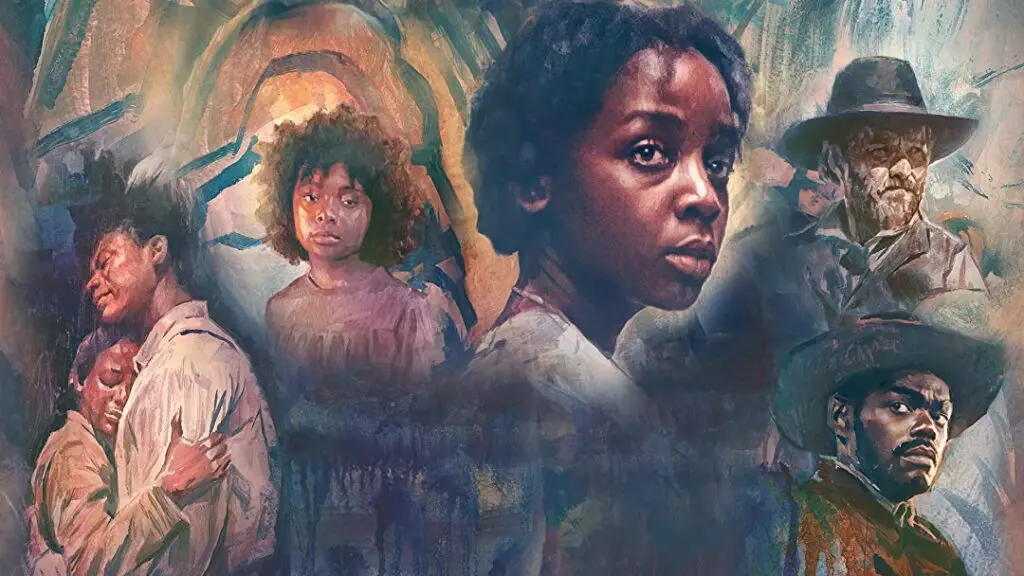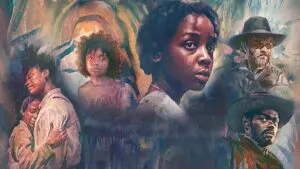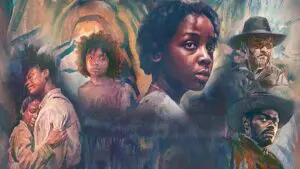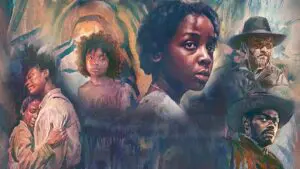Summary
“Chapter 10: Mabel” sees off The Underground Railroad in a typically poignant fashion, giving an incredible series a final, welcome note of hope.
This recap of The Underground Railroad episode 10, “Chapter 10: Mabel”, contains spoilers, as well as a frank discussion of The Underground Railroad’s ending.
After a penultimate episode that was among the finest ever committed to film, it was pretty much impossible that The Underground Railroad wouldn’t have an anticlimactic finale. Smartly, though, “Chapter 10: Mabel”, doesn’t try and compete with it in stakes and scope. Instead, it’s mostly a flashback depicting what happened to Mabel, Cora’s mother, whose disappearance from the Randall plantation has been integral to the arcs of both Cora and Ridgeway without her ever having been glimpsed beyond in momentary cutaways.
With Mabel as the focus, it’s no surprise that The Underground Railroad episode 10 is so focused on childbirth and motherhood. Giving birth to and raising children on a cotton plantation is depicted with the frankness the show has lent to all its depictions of Black life in the pre-Civil War South, and Mabel is depicted consistently as a figure of nurturing and care, almost a deity among the women for whom childrearing is new or difficult, physically and emotionally. The role of men, some fathers and some not, becomes quickly oppressive and violating, upsetting a delicate balance that should lean more toward the feminine. All slaves are stripped of their humanity, but male slaves tend not to be stripped of their maleness, which is prized, in the way that female slaves are stripped of their most essential femininity.
Throughout “Chapter 10: Mabel”, the title character becomes symbolic of motherhood itself. To Cora, her absence always represented the loss of that matriarchal figure in its totality; the complete absence of support, one being left to fend completely for oneself. The idea of protection is tied so intimately to parenthood that her loss of Mabel was also the loss of a buffer between herself and the harsh realities of enslavement. When Moses pushes Mabel away from his child, he suffers a terrible loss, as though he’s paying his penance for rebuking a divine offering. Mabel is consistently framed this way. Most of her dialogue takes the form of pleas to be listened to, but she rarely ever is. Nobody can accept she knows better.
On some level Mabel seems to know this about herself; the frustration of it almost breaks her, and compels her to unbecoming aggression towards Cora, even if it’s for her own protection. She begins to feel personally responsible for the traumas around her, which leads her to near-delirium. When she ventures into the woods, the sound of the insects swells to a deafening crescendo. It’s so loud and disorienting that you almost don’t notice that she has been bitten by a snake, or what that might mean. One of the questions you’re compelled to ask throughout The Underground Railroad episode 10 is how a woman so obviously equipped to be a mother would abandon her only child in the self-serving way described all throughout the season. The revelation of The Underground Railroad‘s ending is that she didn’t. She was bitten by that snake, and she died before ever being able to make it back home. She never escaped.
Cora, though, is able to; able to make it to the light at the end of the tunnel, quite literally. Many of the episode’s later sequences are near worldless, one of her burying the okra from her pouch in particular. What Cora has inherited from Mabel, without having even realized it, is that sense of nurturing and love, the inclination to plant and raise a seed no matter what. In her, the story finds an enduring, generational spirit, a will to not just survive but ensure the survival of others. The essence of motherhood — the essence of life itself, to persevere despite any and all hardship. To survive. When she and Molly climb into a wagon with a man who swears to mean them no harm, they have the good sense to believe him. Together, they head west. And together, they survive.




